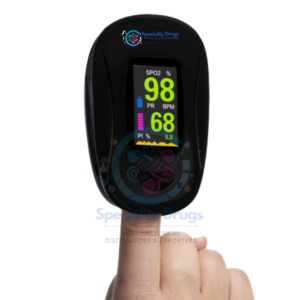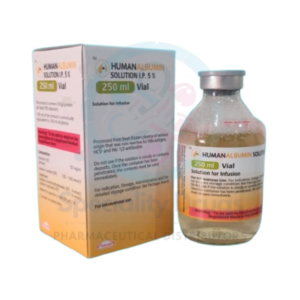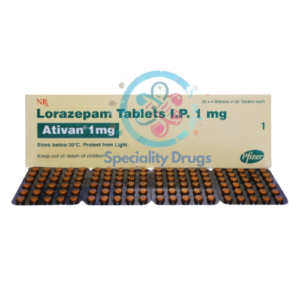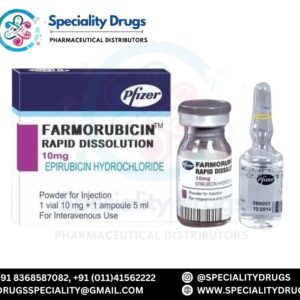What is Decitabine for Injection 50 mg?
Decitabine for Injection 50 mg is a chemotherapy drug used in the treatment of certain blood cancers. It belongs to a class of medications called hypomethylating agents, which work by modifying the expression of genes involved in cancer cell growth. It is administered intravenously (IV) under the supervision of a trained oncologist.
💉 What is the Use of Decitabine for Injection?
Decitabine is primarily used for treating:
-
Myelodysplastic Syndromes (MDS) – a group of disorders caused by poorly formed or dysfunctional blood cells
-
Acute Myeloid Leukemia (AML) – especially in older patients who are not suitable for intensive chemotherapy
-
Chronic Myelomonocytic Leukemia (CMML) – sometimes used off-label
✅ Benefits of Decitabine 50 mg Injection:
-
Helps in restoring normal function of bone marrow
-
Reduces the need for blood transfusions
-
Delays the progression to acute leukemia in MDS patients
-
Can be used in patients who cannot tolerate high-dose chemotherapy
-
May improve survival and quality of life in certain cancers
⚠️ Side Effects of Decitabine for Injection:
Like all cancer medications, Decitabine may cause side effects. Common and serious ones include:
Common Side Effects:
-
Low blood cell counts (anemia, neutropenia, thrombocytopenia)
-
Fatigue
-
Fever
-
Nausea or vomiting
-
Constipation
-
Injection site reactions
Serious Side Effects (Seek immediate medical attention):
-
Severe infections due to low white cell count
-
Bleeding or bruising
-
Liver function abnormalities
-
Allergic reactions
📝 Important Notes:
-
Regular blood tests are required during treatment to monitor blood counts and liver/kidney function
-
Use effective contraception during treatment and for a period after
-
Not recommended during pregnancy or breastfeeding
🧊 Storage:
-
Store the vial at 2°C to 8°C (refrigerated)
-
Do not freeze
-
Use reconstituted solution immediately or as per manufacturer’s guidelines
-
What is Trametinib 0.5mg Tablet used for?
Trametinib is used to treat melanoma, non-small cell lung cancer (NSCLC), and thyroid cancer with a BRAF V600E or V600K mutation. -
How does Trametinib work?
It works by inhibiting MEK1 and MEK2 enzymes, which are part of the MAPK signaling pathway that promotes cancer cell growth. -
Can Trametinib be taken alone or only with other medications?
Trametinib can be taken alone, but is often used in combination with Dabrafenib for better outcomes. -
What is the usual dose of Trametinib 0.5mg?
The typical dose is part of a daily oral regimen, but exact dosing varies per patient and should be decided by an oncologist. -
What are the most common side effects of Trametinib?
Common side effects include rash, diarrhea, fatigue, fever, nausea, and skin irritation. -
Are there any serious risks associated with Trametinib?
Yes, serious side effects include heart problems, eye disorders, lung inflammation, and blood clots. -
Can Trametinib cause vision problems?
Yes, it may cause blurred vision, retinal detachment, or other eye issues. Eye exams are recommended during treatment. -
What should I do if I miss a dose of Trametinib?
If it’s less than 12 hours late, take it as soon as possible. If more than 12 hours have passed, skip the missed dose. -
Can Trametinib be taken with food?
No, it should be taken on an empty stomach — at least 1 hour before or 2 hours after a meal. -
Is Trametinib safe during pregnancy or breastfeeding?
No, it can harm the baby. Effective contraception is advised during and after treatment. -
How long does treatment with Trametinib last?
Treatment continues as long as there is a positive response and tolerable side effects. Your doctor will decide the duration. -
Do I need any tests before or during Trametinib treatment?
Yes, BRAF mutation testing, heart function tests, eye exams, and regular blood work are necessary. -
Does Trametinib interact with other medications?
Yes, it can interact with drugs like antibiotics, antifungals, and heart medicines. Inform your doctor of all medicines you take. -
How should Trametinib be stored?
Store at room temperature (below 30°C), away from moisture, heat, and light. -
Is Trametinib a chemotherapy drug?
No, it’s a targeted therapy, not traditional chemotherapy. It works on specific molecular targets in cancer cells.






Reviews
There are no reviews yet.